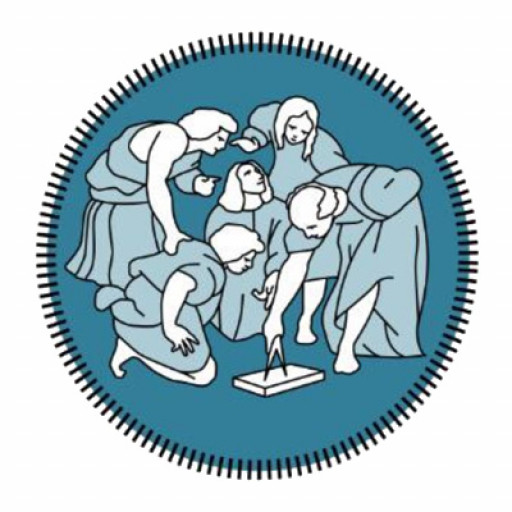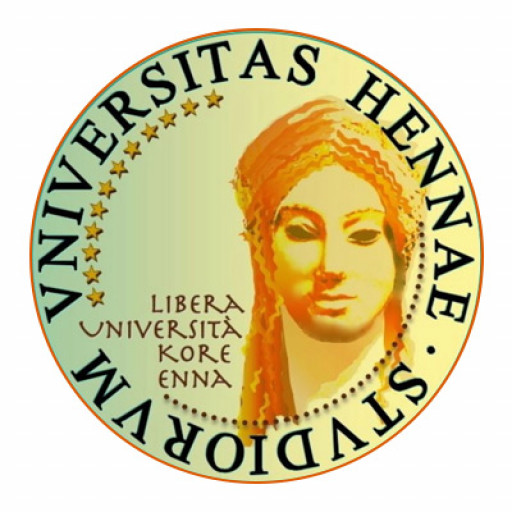Photos of university / #jamescookuniversity
The Bachelor of Aeromedical Retrieval at James Cook University is a specialized undergraduate program designed to prepare students for challenging careers in the aviation and emergency medicine sectors. This degree offers a comprehensive curriculum that combines advanced knowledge in aeromedical retrieval, aviation operations, medical emergency management, and healthcare systems. Throughout the course, students gain practical skills in emergency response, patient transport, and clinical decision-making within the unique context of aeromedical operations. The program is structured to provide a solid foundation in aviation safety, aircraft operations, and medical procedures necessary for delivering prompt and effective healthcare in remote or inaccessible environments. Students will also explore topics related to risk management, law and ethics in aeromedical practice, and teamwork in high-pressure situations. James Cook University's emphasis on real-world applications ensures that graduates are well-equipped to operate efficiently within multidisciplinary teams, manage medical emergencies in flight, and navigate the complexities of remote healthcare delivery. The university leverages its close ties with industry partners and its location in Queensland to offer practical training opportunities, including simulations and internships with aeromedical service providers. Graduates of this program are prepared for careers as aeromedical retrieval paramedics, clinical flight paramedics, or operational managers in emergency medical services. With a focus on safety, innovation, and clinical excellence, the Bachelor of Aeromedical Retrieval aims to meet the growing demand for highly skilled professionals who can deliver critical medical services to remote and rural populations. This program is ideal for students passionate about healthcare, aviation, and making a tangible difference in complex emergency situations, offering a unique blend of medical, technical, and operational training that aligns with industry standards and global best practices.
Aeromedical Retrieval at James Cook University offers a comprehensive and specialized program designed to equip healthcare professionals with the skills, knowledge, and practical experience necessary to excel in the field of aeromedical retrieval and critical care transport. This program is tailored for individuals seeking to advance their expertise in emergency medical services, pre-hospital care, and the unique challenges associated with air medical evacuation.
The curriculum covers a broad range of topics including advanced pre-hospital care, aeromedical operations, aircraft safety procedures, and the physiological considerations of patients in flight. Students will learn about the logistics and management of medical evacuations, including the coordination with air traffic control, dispatching, and emergency response teams. The program emphasizes a multidisciplinary approach, integrating clinical skills with operational and logistical competencies to prepare students for a variety of scenarios encountered in aeromedical retrieval.
Practical training forms a core component of the program, with simulated and real-world clinical placements that allow students to apply their knowledge in controlled environments. Participants will gain hands-on experience with state-of-the-art medical equipment and learn to work effectively within multidisciplinary teams during high-pressure situations. The program also emphasizes leadership, decision-making, and communication skills essential for maintaining patient safety and ensuring effective team coordination during retrieval missions.
Students will be involved in case studies and scenario-based learning, which enhance problem-solving abilities and critical thinking. The program also covers legal, ethical, and cultural considerations relevant to aeromedical retrieval, preparing graduates to operate within diverse regulatory frameworks and to address the needs of patients and families in sensitive situations.
The faculty comprises experienced clinicians, aeromedical specialists, and operational professionals who bring real-world insights and mentorship to the program. Graduates will be prepared to work in a range of settings including helicopter emergency medical services (HEMS), fixed-wing aircraft transports, and hospital-based retrieval teams. They will gain the competence to manage complex medical cases, ensure operational safety, and contribute effectively to the evolving field of aeromedical retrieval.
Overall, the Aeromedical Retrieval program at James Cook University is dedicated to fostering skilled professionals who can deliver high-quality care in remote and challenging environments, making a vital difference in patient outcomes and emergency response efficiency across the region.
Admission to the Aeromedical Retrieval program at James Cook University requires applicants to possess a relevant undergraduate degree in a health-related field such as nursing, paramedicine, or medicine. Applicants must demonstrate a minimum of two years of professional clinical experience in their chosen health discipline, with a preference for those who have worked in emergency, aeromedical, or rural and remote healthcare settings. Proof of registration or licensing with the relevant professional body must be provided, ensuring the applicant is currently authorized to practice in their profession. Additionally, applicants are expected to have a valid Australian driver's license, reflecting the necessity for mobility in aeromedical retrieval roles.
Applicants must submit a current curriculum vitae (CV) detailing their professional and academic history, highlighting experience in emergency response, patient care, and teamwork. Evidence of prior training or coursework related to aviation medicine or pre-hospital emergency care should be included, as these are considered advantageous. The selection process evaluates not only academic qualifications but also practical experience, communication skills, and the ability to work under stressful conditions.
English language proficiency must be demonstrated through tests such as IELTS or TOEFL, unless the applicant has completed their degree in an English-speaking country or at an institution recognized by James Cook University. The minimum IELTS score required is overall 7.0 with no band less than 6.5. Personal statements and references from professional supervisors are also part of the application to assess motivation, commitment, and suitability for the demanding nature of aeromedical retrieval work.
Applicants must also complete a formal interview process, either in person or via video conferencing, where their interpersonal skills, decision-making abilities, and understanding of aeromedical principles are evaluated. As part of the admission requirements, candidates should demonstrate a strong commitment to rural and remote health initiatives, as the program emphasizes services in underserved areas.
Health requirements may include a recent medical examination and vaccination records to ensure fitness for clinical practice and exposure to infectious diseases common in remote operational environments. Background checks and completion of relevant safety training modules are additional prerequisites.
Once admitted, students are expected to adhere to the university’s code of conduct and participate actively in both theoretical coursework and practical simulations, which may include mock aeromedical missions and emergency scenarios. Continuous professional development and engagement with ongoing research in aeromedical retrieval are encouraged to maintain competency and stay abreast of advances in the field.
There is no specific information available regarding the financing options for the Aeromedical Retrieval program at James Cook University. Generally, students enrolled in postgraduate health programs at JCU can access a range of financial assistance options, including university scholarships, government loan schemes such as HECS-HELP for Australian citizens and permanent residents, or FEE-HELP for other eligible students. International students may need to pay tuition fees upfront or arrange private financial support, as they are typically ineligible for government loan schemes. JCU offers multiple scholarships based on academic merit, financial need, or specific criteria such as indigenous status or regional origin, which can significantly offset the cost of studies. Additionally, students should consider costs related to living expenses, accommodation, textbooks, and insurance, as these are separate from tuition fees. It is advisable for prospective students to contact the university's admissions or financial aid offices directly to obtain detailed information about applicable financial assistance, eligibility criteria, application procedures, and deadlines. Moreover, students may explore external funding options, including Commonwealth or state government grants, private bursaries, or employer sponsorship programs if available. International students should also evaluate visa requirements that may include health insurance obligations (Overseas Student Health Cover) and additional costs. To plan financially, students are encouraged to consult the university's official website or financial advisors to ensure comprehensive understanding of all expenses and available financial support mechanisms related to the Aeromedical Retrieval program.
The Bachelor of Aeromedical Retrieval at James Cook University is a specialized program designed to prepare students for careers in the aeromedical retrieval sector, which involves the transportation and emergency medical care of patients via aircraft. The program aims to develop highly skilled health professionals with expertise in aviation medicine, emergency health assessment, trauma management, and operational coordination in remote and challenging environments. Students gain comprehensive knowledge of aviation protocols, medical equipment used in-flight, and the complexities of providing life-saving interventions in aerial and adverse conditions. The curriculum combines theoretical coursework with practical training, including simulation exercises, clinical placements, and partnerships with emergency services and aviation organizations. Graduates are equipped to work in a variety of roles, such as aeromedical retrieval crew members, flight nurses, paramedics, and emergency medical pilots, often operating in remote and rural areas where access to immediate medical care is critical. The program emphasizes interdisciplinary collaboration, decision-making under pressure, and cultural competence, particularly in serving Australia's diverse populations. It also incorporates the latest advancements in medical technology, safety standards, and aeromedical operational procedures. Students benefit from state-of-the-art facilities, experienced faculty, and opportunities to engage with industry professionals through internships and research projects. The training prepares graduates to work in high-pressure environments, ensuring swift and effective medical response during critical situations. As a unique offering from James Cook University, the program addresses the specific needs of Australia's vast and remote regions, ensuring healthcare providers are ready to meet the challenges of aeromedical retrieval. Besides technical skills, students also develop leadership, communication, and teamwork abilities vital for success in this demanding field. Overall, the program combines rigorous academic study with hands-on experience to produce well-rounded professionals capable of making a significant impact in emergency medical services delivered via air.








